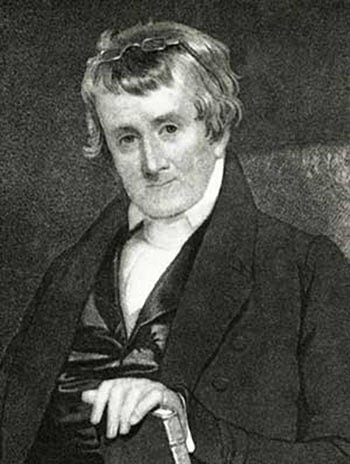Archibald Alexander 1772–1851

Archibald Alexander
Born of Scottish-Irish parents, Alexander was converted during the Hampden-Sydney College Revival in 1787, which began when a mere handful prayed, and resulted in the conversion of over half the students! More than thirty of them entered the Presbyterian ministry, as did Alexander.
“He says of himself at the age of seventeen: “My only notion of religion was that it consisted in getting better. I had never heard of any conversions among Presbyterians.” A pious lady in a family where he was employed as tutor, loved the writings of Flavel, and as her eyes were weak, often sent for him to read to her.
This was the means of his conversion. Hearing of the great revival in the neighborhood of Prince Edward, he, with some of his fellow students, went to the scene of religious wonders, attended a communion season, heard Dr. John Blair Smith and others preach, saw Wm. Hill and others of the recent converts, and on their return “a revival of great power commenced which extended to almost every Presbyterian church in the Valley of Virginia.”
He became an itinerant evangelist in Virginia and North Carolina, though still only a teenager. These early years witnessed many revival scenes.
Successful pastorates in Charlotte County and his evident academic abilities led to his call as President of Hampden-Sydney College in 1794, a position he held for a decade.
In 1807 he was installed as Pastor of Pine Street Church in Philadelphia and was soon elected as Moderator of the Presbyterians General Assembly.
He is most well known as the first professor of the newly-formed Princeton Theological College in 1812. His Reformed theology and passionate piety ideally suited him to the task.
Few men in his day were more intimately acquainted with the work of revival. The missionary and revival spirit which long characterized the seminary were due in no small part to the powerful influence of this godly man.
Archibald Alexander’s Legacy: The Log College
He authored ‘The Log College’ presenting a number of biographical sketches of the founder and principal alumni of William Tennent’s theological school, contemptuously called ‘The Log College,’ and his students together with an account of the revivals that followed their ministries.
He included biographies of Rev. Gilbert Tennent, Rev. John Tennent, Rev. William Tennent, Jr, Rev. Samuel Blair, Rev.Samuel Finley and others who subsequently became revivalists. During cold and unreligious times these men are described by Tennent as men who ‘lived fast … they did much for their Lord in a short time…being burning and shining lights, they were consumed while they gave light to others….
He also contributed a valuable assessment of Revivals in the form of a letter included in William Sprague’s ‘Lectures on Revivals of Religion.’
Bibliography: W. Andrew Hoffeker, Dictionary of Evangelical Biography 1730-1860, 1995; Earle E. Cairns, An Endless Line of Splendour, 1986; Bruce Shelley, The New International Dictionary of the Christian Church, 1974. Thompson, C.L., Times of Refreshing.
Tony Cauchi
For further research:
Archibald Alexander – Biography and Available Books



